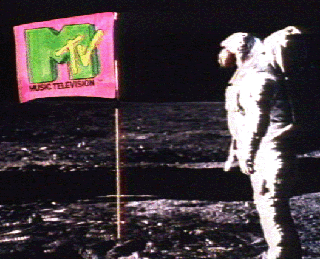
Most-Recent Entries
By: Ben Cannon, Bram Epstein, and Darrin Snider
Sunday, June 6, 2021
M.O.R. Episode 2 -- Ian Thomson
By: Ben Cannon, Bram Epstein, and Darrin Snider
Sunday, May 23, 2021
M.O.R. Episode 1 -- Mark Kelly
By: Ben Cannon, Bram Epstein, and Darrin Snider
Sunday, May 16, 2021
An In-Snide Look: I Think I Could Get Used to this Life Sometimes
By: Darrin Snider
Sunday, June 7, 2020
Getting Down to Earth with mOOnMen
By: Amy Foxworthy
Sunday, February 16, 2020
The Musical Journey of Jethro Easyfields
By: Amy Foxworthy
Tuesday, February 11, 2020
Monday Mixtape: Etwasprog
By: Darrin Snider
Monday, February 10, 2020
Monday Mixtape: Excerpts from the Summer of 2014
By: Darrin Snider
Monday, January 20, 2020
Mix Tape Monday: Mashin' it Up
By: Darrin Snider
Monday, January 13, 2020
Mix Tape Monday: Back to the Gym Workout
By: Darrin Snider
Monday, January 6, 2020
This is your Business
By: Brandon Cannon (brandon at indyintune dot com)Wednesday, August 21, 2013 6:00:00 PM
 Video killed the radio star, or did it? In 1981, MTV's iconic spaceman was introduced for the first time. Some conservative music critics might argue this began the demise of rock and roll. Let's keep in mind, some of the same critics likely proclaimed the Beatles invasion as detrimental to the pedigree of music as well. What MTV did, for better or worse, was to radically change the music industry. It created a new medium for creativity and introduced music to a generation that was moving away from 8-tracks and mix tapes. John Cusack would later cement the mix tape as the quintessential expression of love in Nick Hornsby's, High Fidelity (2000). However, that is another story entirely.
Video killed the radio star, or did it? In 1981, MTV's iconic spaceman was introduced for the first time. Some conservative music critics might argue this began the demise of rock and roll. Let's keep in mind, some of the same critics likely proclaimed the Beatles invasion as detrimental to the pedigree of music as well. What MTV did, for better or worse, was to radically change the music industry. It created a new medium for creativity and introduced music to a generation that was moving away from 8-tracks and mix tapes. John Cusack would later cement the mix tape as the quintessential expression of love in Nick Hornsby's, High Fidelity (2000). However, that is another story entirely.Jump ahead to the 1990's and these same critics may continue to argue that digital downloads killed the video star. Some might go as far to say that digital downloads (Napster) killed the music industry all together. Some of my friends will argue, and with good merit, that digital downloads actually killed the important industry of album art…also, another story.
What really happened in both these cases was an evolution. From Elvis, to the Beatles, to MTV, to digital downloads, the music industry has historically experienced dramatic hiccups that propelled music in new and exciting directions.
Today, music is more popular and accessable than ever. The ease of digital recording and distribution has broken down financial constraints to artist publication. In the process, this created almost infinite choice to listeners, and consider this, most of the top 50 albums of all time were recorded in the 1970's and 1980's. I'll personally say that not many were recorded after 2000. These statistics have no reflection on the quality of music (I would argue some of it is better today than ever) but the amount of choice. With the vast availability of music, it is impossible to match the album sales of the 70's and 80's that competed in a finite marketplace.
This is great if you are a music fan, but not so great if you are an artist attempting to make any financial gains from your music. The traditional model of marketing, selling, and distributing music has gone away. You can debate the pros and cons of any of the above referenced events, but the bottom line is you can't fight change. You can't fight this evolution.
If you are an artist, you need to think creatively (isn't that what makes you an artist in the first place?). If the traditional model of music distribution is dead, how will you change your business plan? You do have a business plan, right? This is your business so treat it as such.
My first recommendation is to read the book, Free: The Future of a Radical Price, by Chris Anderson. The premise of the book is that electronic distribution (digital downloads) will become so inexpensive that they will eventually be free. This isn't bad news if you take the position that you understand where things are going, and you make plans to adjust accordingly.
Evolution is inevitable. As Charles Darwin said, “It is not the strongest of the species that survives, nor the most intelligent that survives. It is the one that is the most adaptable to change.”
| Previous Post: I Dream of Things That Never Were and Ask Why Not? | Next Post: Gettin Ready for the Rollout |
 Brandon Cannon is a founding member of the band Spanking Shakespeare, the visionary behind the "Shine: Local Music Spotlight" series, and Editor-in-Chief of the Indy In-Tune blog. Brandon Cannon is a founding member of the band Spanking Shakespeare, the visionary behind the "Shine: Local Music Spotlight" series, and Editor-in-Chief of the Indy In-Tune blog. |
Blog comments powered by Disqus
Gear Up for Summer
 As seen on the webcam. Are you one of those people who can't survive without copious amounts of coffee in the morning? You definitely need one of our stainless steel travel mugs.
Give your caffeine the gift of style...
As seen on the webcam. Are you one of those people who can't survive without copious amounts of coffee in the morning? You definitely need one of our stainless steel travel mugs.
Give your caffeine the gift of style...
Solicitations and Submissions
Solicitations for blog posts can be made by sending and email to "blog -at- indyintune -dot- com" and should follow these guidelines:
- Local (Indianapolis-based) acts always have priority.
- Visisting acts playing a bill with one or more local acts are also considered.
- We generally don't like to repeat content found on other sites. If your request already has a lot of coverage on other sites, it will be considered low-priority unless you can give us an exclusive angle.
- For obvious reasons, we don't do solicited album reviews, though we do appreciate you letting us know when you have a new release. Consider coming in and talking about the album yourself live on the air or a podcast.
- All of our staff writers are unpaid enthusiasts. All requests for blog posts are entirely at their descretion.
- As such, they generally need a lot of lead-time to put something out -- we're talking weeks of lead time, not hours.
- That said, individual authors have full authority to ignore the following guidelines and write whatever they want ... if you can convince them to.
- In addition, feel free to write your own post and submit it for posting as a "guest blogger." Those almost always get accepted.
- Finally, regional or national acts submitting without meeting the above guidelines are generally ignored. We're not trying to be dicks, but if you send us a generic form-letter with your press release, and it doesn't even remotely concern a local artist or event, then you're not part of our core focus.